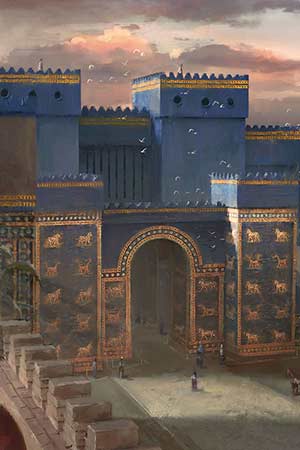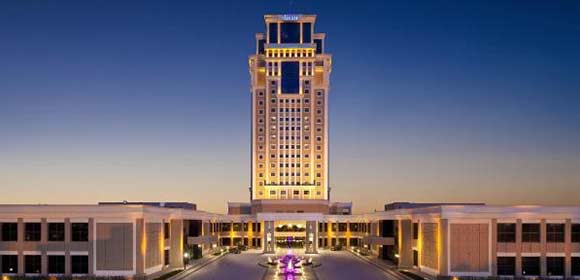There are many Iraq casino clubs in Baghdad and other Iraqi cities, despite that, all of these clubs are against Iraqi law, and the Iraqi authorities launched an extensive campaign in the capital, Baghdad, during August of the year 2019, which resulted in the closure of many roulette halls and arrests. It has about 120 employees and frequent visitors, so going to the Iraq casino may be a big risk, and it is better to play in the online casino sites that we recommend to you on our site, as they are safer and give you the highest level of privacy possible.
Best Online Casino in Iraq
There are many online casino sites here where you can play different types of gambling games, but it is very important that you choose one of the best casino sites in order to have an enjoyable and reliable gaming experience. The following list includes the best online casino in Iraq:
Online Casino Games
With the best online casino sites, you can enjoy the best and most exciting and exciting online casino games in an adventure that is no less amazing than the one that you can play in the best land-based casinos.
Online Poker
Online poker is one of the most popular casino games in the world. With Iraq bet, you can enjoy this exciting game in many different forms, most notably Texas Hold’em Poker. You can also learn about online poker winning tips and strategies by visiting the page dedicated to this topic specially prepared by our expert team.
Online Roulette
Roulette is one of the most, if not the most, popular gambling games in Iraq. Iraq betting site aims to guide you correctly to achieve winnings in the game of roulette online by playing in the best online casino sites that allow online roulette in Iraq.
Online Blackjack
Online blackjack is also one of the most popular online casino games that rely on playing cards. If you want to learn the best blackjack strategies and make the biggest winnings by playing at the best online casino sites, Iraq Bet is the right place for you.
Free Online Casino Games
If you are a beginner in casino games and want to learn the basics of gambling games, then do not worry about it. Here at Iraq Bet you can find free online casino games and play without venturing with real money. Free online casino games are available on the best casino sites with the aim of educating novice players in a gambling game, guiding them in the right way, and helping them gain the necessary experience and skills without losing real money.
Real Money Gambling Games in Online Casino
Do you want to play in a real money casino online? Do you want to experience real money gambling games in an online casino that are no less in quality than the best land-based casinos in the world? You are in the right place. Here in Iraq Bet there are real money gambling games that you can play in the best online casino sites that we suggest to you. You can experience playing online roulette, online poker, online blackjack and many other amazing and interesting online casino games.
Online Casino Iraq

Although there are some land-based casino halls in Iraq, they are officially prohibited by Iraqi law and are therefore not safe enough. Online Casino Iraq is the right alternative for all gambling enthusiasts in Iraq, where you can enjoy an unprecedented and high quality gambling experience. Here at Online Casino Iraq you can find any online casino game you can think of, and there are many different and secure payment methods. That’s not all, with Online Casino Iraq you can get a lot of generous bonuses and offers and double your profits through them.
Online Casino Baghdad
It is known that the Iraqi capital, Baghdad, is one of the most famous Iraqi cities in terms of gambling. If you are one of the lovers of gambling games in Baghdad, there is no need from the moment to go to a real casino in the presence of an online casino Baghdad, in which you can have a smooth and fun online casino gaming experience with the utmost confidentiality and privacy for all users to avoid any legal issues .
Online Casino Erbil
Baghdad is not the only place where you can sign up for online casino sites, so if you reside in the city of Erbil in northern Iraq, you are also lucky. With Online Casino Erbil, you can subscribe to one of the online casino sites recommended by our team of experts and start enjoying and playing the best online casino games.
Online Casino in Different Countries
Online casino is not exclusive to Iraq only, but there is an online casino for many countries in the Middle East and in the world.
Online Casino Kuwait
It is well known that Kuwait is also an Arab country with Islamic teachings and customs, and therefore its law forbids the existence of land-based casinos. As in Iraq, Kuwait Casino is the right place for all lovers of betting and lottery games in Kuwait, where they can enjoy the experience of playing in an online casino without having to think about legal issues and problems because the best Kuwait casino sites are concerned with preserving the privacy of players for their safety.
Online Casino Qatar
Do you live in Qatar and want to experience playing famous gambling games such as poker and roulette? Do you find it difficult to find land-based casinos in the State of Qatar, whose law prohibits this? no problem. With the Iraq bet, you can do this by subscribing to one of the online casino Qatar sites or Doha Casino ones and making the first deposit via any of the available payment methods. At Online Casino Qatar you can also take advantage of the bonuses and offers offered to double your winnings.
Online Casino Saudi
Getting to one of the places where you can play casino games in any Arab country is difficult, but it reaches the most difficult stages when it comes to Saudi Arabia because it is the country that implements Islamic law almost completely in its constitutional law. Playing in a Saudi online casino is very easy, all you have to do is register on one of your recommended sites and start enjoying a high-class gaming experience.
Online Casino in Another Countries
As we mentioned earlier, online casinos are not limited to Iraq only, but there are many countries in the Middle East and in the world in general, if you are a resident in which you can enjoy the experience of online gambling. In addition to the countries mentioned above, with the Iraq bet, you can play in Bahrain casino or UAE casino. You can also play in Turkey online casino or London online casino if you are an Arab residing in one of these countries and you will find everything you want to get.
Land-based Casinos in Iraq

The land-based casinos in Iraq give their visitors a great feeling with the best bars, fine restaurants, comfortable staff, exclusive interiors, elegant and private hotel rooms and a great entertainment programme. Technically, land-based casinos are described as real casinos located in well-known places and areas where people can actually visit and start playing various and favorite games and win real money.
An Iraqi player who goes to a land-based casino needs some tips and information so that he can play and understand exactly what to do to increase his winnings. While the games are entertaining, everyone wants to go home with some winnings. This can only be possible if you follow some of these instructions and tips to make your gambling adventure more profitable.
Overall, physical casinos offer players a great entertainment environment along with some of the most popular games in the world such as poker, blackjack, roulette, poker, and more. The love that Iraqis have for their casinos is unparalleled. With more than 2,000 table games and 56,000 slot machines spread across over 100 legally operating land-based casinos, the gambling and betting scene in Iraq is extremely lucrative and highly dynamic for operators.
The 2010 statistics clearly show that the average wager per adult in Iraq was $200 per year and that doesn’t include winnings, there are thousands of people working in the huge industry that is only growing over time.
In this paragraph, we will learn about the most important land-based casinos in Iraq, which are as follows:
Baghdad Casino
Casino Baghdad focuses mainly on roulette games as the preferred genre for Iraqi players and tourists alike, but we mentioned earlier that Baghdad Casino is illegal, so the games available in it may be illegal! The Iraqi government conducts a lot of raids on these halls to arrest those who frequent them and their employees. Moreover, the games offered at Baghdad Casino are often unfair as they are not offered in a legal casino. Hence, it is best to play at a trusted online casino like Betfinal.
Erbil Casino

The Erbil region is considered one of the most important tourist attractions in Iraq and the Middle East as a whole, and it contains many night centers, night clubs and casinos that attract tourists from all over the world, especially from the Republic of Iran and the Arab Gulf countries.
Although the legal legislation prohibits gambling activities, most of the time strict laws are not applied to the gambling halls in Erbil. However, it is not possible to guarantee a fair gaming experience in these casinos, as there is no legal umbrella for these clubs. So we also advise you to play at online casinos that give you the highest possible level of security and privacy.
Sulaymaniyah Casinos
Sulaymaniyah is a border city located in the north-east of Iraq, and in this city there are some cafeterias and nightclubs that offer gambling games, but despite that, all Sulaymaniyah casinos are illegal and people who go there risk being arrested and their money confiscated.
However, you can enjoy online casino sites as they offer you a wide range of exciting games that you can enjoy on your smartphone or tablet freely. You will not risk your financial or personal data in any way, and you will get a wide range of unique bonuses and promotions that you can use to get more chances to win and win. You will have access to a lot of local and international financial means as well.
Dohuk Casino

Dohuk is also a city located within the Kurdistan Region of Iraq (Erbil) and recently this city has gained great popularity and has become a tourist attraction. Therefore, the owners of cafes and cafeterias were quick to offer Dohuk casino games to tourists to increase their returns, however, tourists and even citizens there may not be aware that they are breaking the law and can be arrested at any time!
So it is better for players to enjoy playing in an online casino and enjoy a fair, profitable and enjoyable experience as well. If you prefer a realistic gaming experience, you can enjoy playing in the live casino with real dealers and other players. In these games, you can communicate with distributors and players via live chat.
Online Casino vs Land-based Casinos
There is no doubt that there are some luxurious and wonderful land-based casino halls in the world in general and in Iraq in particular, but on the other hand, online casino sites have also become available everywhere, and with the continuous scientific and technological development, these sites are able to provide a high gaming experience. Level by dealing with the best online gambling development companies in the world. In this section, we will learn about the differences between online casinos and land-based casinos in Iraq.
There are several differences between land-based casinos and online casino sites, where the traditional land-based casinos give you a real gaming experience that is provided by professional dealers using real cards and a physical roulette wheel. In these games, you can practice different strategies and tricks, such as the basic blackjack strategy, card counting system, and other strategies. Money to enjoy short moments of gaming!
On the contrary, online casino sites welcome players with different budgets and provide everyone with a wonderful and enjoyable gaming experience, and you can access the casino on your smartphone while sitting on the sofa of your home, in addition to that, it offers new and loyal players a wonderful set of bonuses and promotions that give Players more chances to win and win!
Online Casino Tips

Playing in an online casino is not much different from playing in land-based casinos in terms of strategies and tricks that differ from one gambling game to another and that it is not possible to win and win without learning it well. Apart from that, there are some tips and guidelines that our team of experts recommend in betting Iraq in order to have an enjoyable gaming experience in an online casino, which are as follows:
- Choose a safe and reliable online casino like Betfinal.
- Play on a budget.
- Get various casino bonuses like welcome bonus and new deposit bonus.
- Play on your own phone, tablet or computer only.
- Try the free versions of the games before betting on them with real money.
Best Online Casino in Iraq
As mentioned earlier, for some casinos in Iraq, which operate under the sponsorship of Iraq Bet, as one of the largest betting platforms in Iraq and the world, this gives confidence to the customers. Gamblers know that betting sites do not endorse a specific casino, in order to allow players to choose the most suitable casino for them, whether it is Iraq Casino or another casino. There are many aspects that have professional certification, when you are under the tutelage of big companies like Microgaming
- The latest security measures in protecting financial transactions and personal data
- Iraq casino bonus from Iraq bet is high with fair wagering requirements and no additional hidden rules in getting it
- Large selection of fun casino games, slot games and table games
- Demonstrated interest in customer support, in the correct development of the gambling industry, and in assisting in responsible gambling.
Betfinal Online Casino

The first thing that catches the eye when looking for more data about the BetFinal online casino is that it has been in the industry longer than the best sites in the world, having seen the light of day in 2012. Such a long time of profitable existence speaks volumes about the way this has chosen operator to manage his business.
With this in mind, this game developer is responsible for more than 600 slots and around 100 different types of table games available after registering with this casino. Also, this quality Bet Final Casino had to gain international recognition. This is revealed by the many languages in which the navigation menu is available
Of course, you can also find an attractive promotion corresponding to 200% first deposit bonus amounts up to 1350€, VIP system based on comp points, cashback bonuses and many surprises especially for Iraq and special payment options for Iraq
888 Online Casino
This is one of the best online casino sites in Iraq and the world, a combination of many other game developers. This helps create a unique identity for 888 Online Casino, making it a constant point of reference in the volatile gambling market: players know what to expect when they sign up and their expectations are met through quality services.
Online casino 888 relies a lot on the quality of its offer, mostly due to the fact that the slot games they put at the players’ disposal are good enough to bring them back for more. Which, given the large number of different titles in the game selection.
How to Chooses Best Online Casino in Iraq
Since there are numerous casinos in Iraq and Iraq betting is one of the best software providers in the industry, it is only natural that many operators use their services. This makes it difficult to browse the entire collection to find the site that best suits the player’s specific needs. Novice players find it difficult especially when they do not have the experience to know what they are looking for. Creating some guidelines to help you navigate through the many options is very helpful. Here are some general rules to help in your search for the best online casino:
1.
Make a clear list of your preferences, type of games you enjoy, banking methods that suit you, appetite for mobile and desktop gaming, etc.
2.
Actual research means comparing your personal list with the services each casino offers and creating a short list of those that determine the most points.
3.
Filter the initial shortlist by reading user reviews and reviews from websites that specialize in online casino analysis.
4.
At this point, you should have about 3 to 5 casinos left to scan. In fact, try out some of their services, play some demo games and imagine yourself being an actual user of that particular casino, until you come across the one that you feel is a perfect fit.

Online Casino Payment Methods
Determining the most appropriate banking methods for a particular Iraq online casino user is the responsibility of the casino operator, due to the fact that he is supposed to know better than anyone else his business. Thus, every casino, powered by one software provider or another, has the final say when it comes to offering banking options to its customers.
However, given the history and experience that Iraq Bet has in the field, it does provide certain guidelines, providing valuable insights into which option works best, and the pros and cons of each alternative. After reviewing several places, we were able to find some popular payment methods accepted by the best part of the titles from our extensive list of Iraq Casinos. Iraqi players prefer the following:
Bank cards. The most common option, used by many casinos, in both versions, is debit and credit cards, usually from Visa and MasterCard, although credit cards from other issuers are also available.
Prepaid cards. In Iraq, most of those issued by Visa are accepted. The way they work is that they already have a set amount on them, which can be deposited without giving additional information about the owner. This comes as a drawback as withdrawals are not allowed on the same card.
Electronic wallets. At this point, there are not many gamblers who are not familiar with this payment option. Some of the most used options in Iraq are Neteller, Skrill or Trustly. The additional data protection provided by these e-wallets, which act as an intermediary in financial transactions, makes them the best transfer option for Iraq Casino.
Online Casino Apps
Mobile casino applications are one of the most important features available in the online casino world, especially for mobile phone users, who represent more than 90% of daily surfers. Online casino apps are available on multiple devices for Android and iPhone operating systems. Through the online casino applications, you can enjoy the live casino by playing on the phone in a wonderful and interesting adventure.
Online Casino Bonuses & Promotions
There are many special offers and bonuses offered by online casino sites in Iraq, and you can take advantage of them when registering at one of the best casino sites available to us. These bonuses and offers vary between welcome offers for the first, second, third and fourth deposits. In addition, there are other bonuses and offers for different online casino games such as No Deposit Bonus, Loyalty Bonus, Refer a Friend Bonus and many more.
Live Online Casino
Are you a fan of live slot games? Do you want to have a fun gaming experience against the best slot players in the world? If the answer is yes, then you are in the right place. Iraq Bet is your first guide to getting to know the best online live casino sites and enjoying the best live casino games such as poker, roulette, blackjack, baccarat and others.
Live online casino games are characterized by neutrality and transparency, and you can play them on online casino sites that have a good reputation and high credibility with the public. All you have to do is register on one of the sites and enjoy this fun gaming experience.
Real Money Online Casino
In our list of the best online casino sites there are many free slot games that you can enjoy playing and learning from, but that is not all of course. At the real money online casino, you can enjoy the best slot games and play for real money against other players from all over the world. At online casino sites in Iraq, you can play for real money in all the famous gambling games, whether they are poker, roulette, blackjack or other games.
FAQs – Online Casino
Is online casino site legitimate in Iraq?
Iraqi gamblers can legally play at any Iraqi casino through online casino sites.
Are there legal gambling halls in Iraq?
There are no legal gambling halls in any Iraqi city, not even in the Kurdistan region of Iraq, so going to any hall located inside a café or casino may put you under the law!
Is playing in an online casino legal?
Playing in an online casino in Iraq is completely legal because these casinos completely secure the data of their players, and the player can get a higher level of security when using a VPN service.
Is there a strategy that I can implement to ensure winning in online casino games?
yes! There are many strategies that you can apply to win in live casino slot games such as card counting strategy in blackjack and basic blackjack strategy, and you can also apply different roulette strategies such as martingale, reversal Martingale, Fibonacci and James Bond.
Will I be able to withdraw my winnings from the online casino?
Certainly, because that is the main reason to gamble: win real money. Iraq betting casinos offer many withdrawal methods, from bank cards and wire transfers to the use of electronic wallets and others, especially for gamblers in Iraq.
Are online casino sites in Iraq betting reliable?
There are many things that can be said about Iraq Betting as the best online casino in Iraq, but the fact remains that Iraq Bet is one of the strongest gambling platforms in Iraq and the Arab world. This relates to the company’s long history, with its initiatives to change the gambling industry for the better, and therefore the online casino sites located here are 100% reliable.